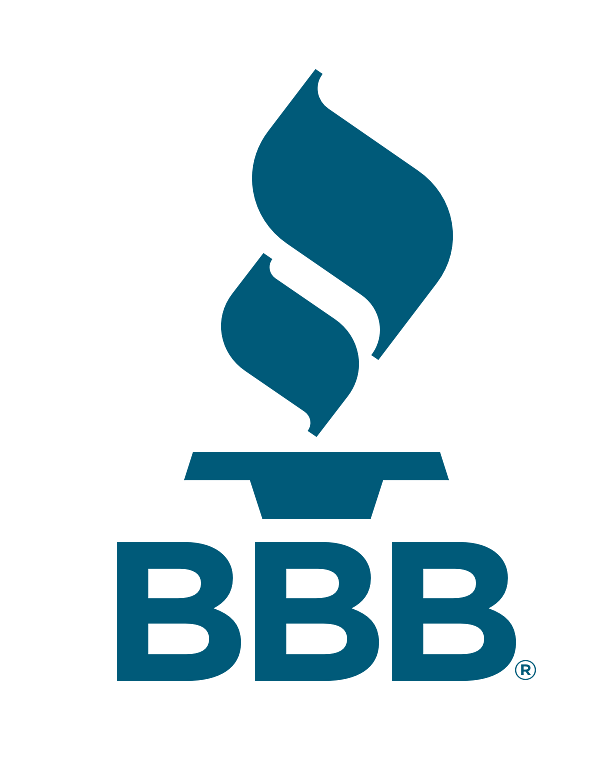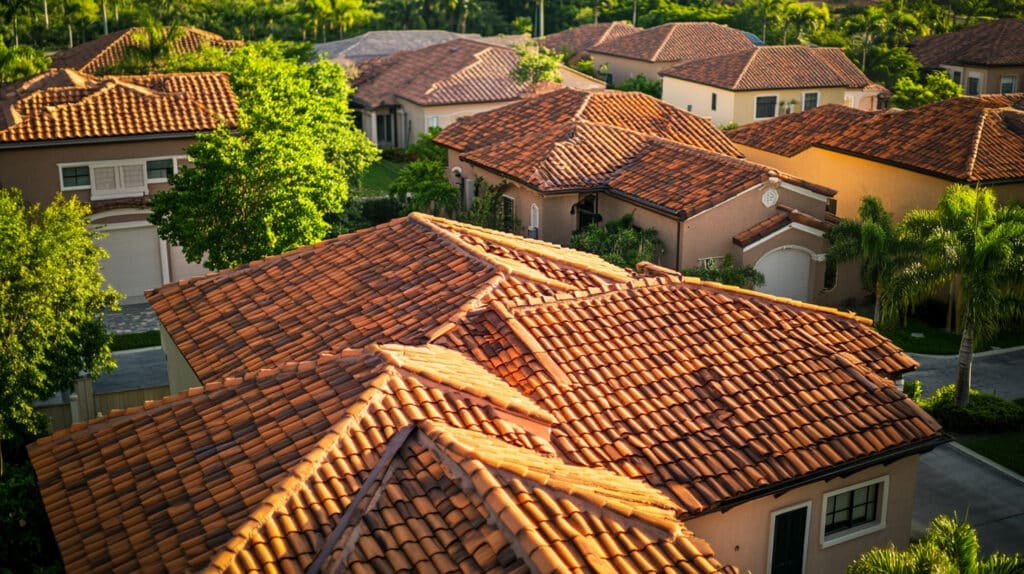Curious About Palm Beach County Roof Inspections? Your Complete Guide to Costs, Requirements, and Choosing the Best Inspector
A roof inspection in Palm Beach County evaluates your roof’s condition, identifies damage mechanisms, and delivers actionable recommendations to protect your home from hurricanes, UV exposure, and moisture intrusion. Annual inspections reveal hidden leaks and structural weaknesses before they become expensive repairs, preserving property value and safety. In this guide you’ll discover what a Palm Beach County roof inspection entails, how much it costs, local code requirements, criteria for selecting a qualified inspector, insurance implications, preventative maintenance tips, and the emerging advantages of drone technology. You’ll learn to budget effectively, navigate permitting and building codes, verify professional credentials, optimize insurance premiums, implement seasonal upkeep, and harness advanced inspection methods—all while drawing on preventative maintenance tips and roofing contractor guidance Lakewood Ranch best practices. This holistic overview empowers you to protect your investment and extend your roof’s lifespan.
What Is a Palm Beach County Roof Inspection and Why Is It Important?
A Palm Beach County roof inspection is a systematic evaluation of roofing materials, structural elements, and drainage components to detect damage and wear. This process uncovers vulnerability mechanisms—like wind uplift, UV degradation, and water infiltration—that threaten home integrity and insurance compliance. Early identification of loose shingles, cracked tiles, deteriorated flashing, and clogged gutters prevents costly water damage and mold growth. Routine inspections enhance safety during hurricane season and contribute to wind mitigation credits on home insurance policies. Understanding inspection scope builds homeowner confidence and establishes the foundation for cost planning, regulatory compliance, and long-term maintenance strategies.
What Does a Roof Inspection Include in Palm Beach County?
- Roofing Material Assessment – Inspectors check shingles, tiles, metal panels, and membranes for cracks, granule loss, and displacement.
- Flashing and Sealant Inspection – Metal flashing around chimneys, vents, and skylights is tested for corrosion and proper adhesion.
- Gutter and Drainage Evaluation – Gutters, downspouts, and roof valleys are cleared of debris to ensure effective water diversion.
- Structural and Attic Review – Inspectors look for sagging rafters, rot, insulation gaps, and signs of water entry in the attic.
- Documentation and Reporting – A detailed report outlines defects, prioritizes repairs, and recommends preventative measures.
These components safeguard your roof’s watertight integrity and prepare you for next steps in cost estimation and code compliance.
How Do Local Weather Conditions Affect Roof Inspections in Palm Beach County?
- UV Degradation – Prolonged sun exposure accelerates shingle brittleness and membrane cracking, requiring early detection.
- Wind Uplift – High winds lift and displace roofing materials, making wind mitigation features like hurricane straps critical.
- Storm-Related Debris – Fallen branches and flying debris can puncture membranes, so inspectors check for impact damage.
- Moisture Intrusion – Intense downpours stress flashings and allow water ingress, so gutters and valleys receive special attention.
Understanding these weather impacts helps you anticipate inspection priorities and strengthen your roof’s resilience.
What Are the Common Roof Issues Found in Palm Beach County Inspections?
- Cracked or Curling Shingles – UV radiation leads to granule loss and edge lifting on asphalt shingles.
- Tile Displacement – Wind-driven uplift shifts clay and concrete tiles, exposing underlayment.
- Corroded Flashing – Salt air and moisture accelerate metal corrosion around penetrations.
- Clogged Gutters – Palm fronds and pollen build-up impede drainage, causing water back-up.
- Attic Condensation – Poor ventilation traps humidity, fostering mold and wood rot.
Recognizing these patterns informs targeted repairs and long-term preventative maintenance planning.
How Much Does a Roof Inspection Cost in Palm Beach County?

A roof inspection in Palm Beach County typically costs between $150 and $400, reflecting factors such as roof size, pitch, material, and inspection depth. This upfront investment identifies damage early, preventing repair bills that can exceed several thousand dollars. Budgeting for professional evaluations ensures timely maintenance and supports wind mitigation credits for insurance savings. Understanding cost drivers helps you compare offers and maximize value from your chosen inspection service.
What Factors Influence Roof Inspection Pricing in Palm Beach County?
- Roof Size and Pitch: Steeper slopes and larger surface areas require more labor and safety precautions.
- Roofing Material: Complex tile or metal roofing demands specialized expertise and equipment.
- Inspection Type: Standard visual inspections cost less than wind mitigation or 4-point insurance inspections.
- Accessibility: Multi-story homes or obstructed roofs increase time and safety requirements.
- Report Depth: Comprehensive reports with photos and moisture readings carry higher fees.
Accounting for these variables helps you anticipate costs and select the most appropriate inspection package.
What Is the Average Price Range for Roof Inspections in Palm Beach County?
Below is a comparison of inspection types, features, and typical fees to guide your budgeting decisions.
| Inspection Type | Typical Fee Range | Key Inclusion |
|---|---|---|
| Standard Visual Review | $150 – $250 | Basic material and structure check |
| Wind Mitigation Audit | $200 – $300 | Uplift testing and component rating |
| 4-Point Insurance Check | $175 – $275 | Roof, plumbing, electrical, HVAC |
| Drone Aerial Inspection | $250 – $400 | High-resolution imagery and report |
These ranges reflect current market conditions in Palm Beach County and help you weigh cost against inspection depth and benefits.
Are There Any Free or Discounted Roof Inspection Offers in Palm Beach County?
- Seasonal Promotions – Discounts of 10–20% off inspections during slower months (spring and fall).
- Referral Programs – Free inspection add-ons or reduced fees for referring neighbors or real estate agents.
- Bundled Services – Lower combined rates when pairing roof inspections with gutter cleaning or solar panel checks.
- First-Time Homebuyer Incentives – Special pricing for buyers requiring pre-purchase inspections as part of financing.
Essential Palm Beach Roof Inspections by Dream Team Roofing
Palm Beach County enforces building codes to ensure structural safety, wind resistance, and water management. Compliance with these codes protects homeowners, supports insurance underwriting, and avoids permit violations. Understanding local requirements and their relationship to Florida’s state regulations streamlines permitting and aligns maintenance with legal standards.
Which Palm Beach County Building Codes Affect Roof Inspections?
- Wind Load Requirements – Roof assemblies must meet design pressures for wind zones up to 140 mph.
- Tile and Shingle Specifications – Approved materials and fastening patterns are detailed in Section 13 of the code.
- Flashing Standards – Minimum flashing gauge and sealant types are specified to prevent water intrusion.
- Roof Ventilation – Attic ventilation ratios of one square foot per 150 square feet of attic space minimize moisture buildup.
Adhering to these provisions during inspections ensures structural compliance and supports wind mitigation credits.
When Are Roof Inspections Required by Palm Beach County Authorities?
- New Construction – Final roof inspection is required before issuance of a Certificate of Occupancy.
- Permit-Driven Repairs – Any structural roof work costing over $2,500 triggers a government inspection.
- Insurance Claims – Post-storm claims often require a documented inspection report for payout validation.
- Sales Transactions – Lenders and buyers frequently demand a current roof condition report to clear mortgages.
How Do Palm Beach County Roof Inspections Relate to Florida State Regulations?
- State Wind and Impact Ratings – Roof coverings must satisfy statewide Miami-Dade and Florida Product Approval stipulations.
- Hurricane Mitigation Features – Hurricane straps and secondary water barriers are required in high-velocity zones.
- Installer Licensing – Only licensed roofing contractors recognized by the state may perform structural roof work and inspections.
This layered regulatory framework enhances safety and ensures uniform standards across jurisdictions.
How to Choose the Best Roof Inspector in Palm Beach County?
Selecting a qualified roof inspector in Palm Beach County hinges on verified credentials, local experience, and a reputation for thorough reporting. A skilled inspector identifies issues accurately, adheres to code requirements, and provides clear recommendations for repair or maintenance. Applying roofing contractor guidance Lakewood Ranch best practices—such as comparing certifications and client references—helps you find the right professional.
What Qualifications and Licenses Should Palm Beach County Roof Inspectors Have?
- State Roofing Contractor License – Issued by the Florida Construction Industry Licensing Board.
- Professional Certifications – Memberships in the National Roof Certification and Inspection Association or similar bodies.
- General Liability Insurance – Coverage for accidental property damage during inspections.
- Workers’ Compensation – Protects homeowners against on-site injury claims.
Verifying these qualifications ensures that your inspector meets legal standards and carries appropriate liability protections.
Why Is Local Experience Important for Palm Beach County Roof Inspectors?
- Hurricane Expertise – Familiarity with wind uplift patterns and mitigation techniques tailored to local storms.
- Material Knowledge – Insight into performance differences in tile, shingle, metal, and membrane roofing under Florida’s sun and humidity.
- Permit Navigation – Ability to coordinate with local building departments and expedite inspection approvals.
Regional expertise translates to more precise assessments, code-compliant recommendations, and faster permit processing.
How Can You Verify a Roof Inspector’s Reputation in Palm Beach County?
- Online Reviews and Testimonials – Look for detailed feedback on inspection thoroughness and communication.
- Industry References – Ask for case studies or referrals from local roofing contractors and real estate agents.
- Professional Affiliations – Confirm membership in trade organizations that enforce ethical standards.
These verification steps ensure you partner with a trusted expert who delivers reliable roof evaluations.
How Do Roof Inspections Affect Home Insurance in Palm Beach County?
Roof inspections influence insurance underwriting by confirming that your home meets carrier requirements for storm resistance and maintenance. Well-documented inspections unlock wind mitigation credits, reduce claim disputes, and certify roof condition for renewals. By aligning inspection results with policy criteria, homeowners can secure more favorable premiums and strengthen protection against hurricane-related losses.
What Is a 4-Point Roof Inspection and Why Is It Important for Insurance?
- Roof Assessment – Confirms roof age, remaining useful life, and sound condition.
- Electrical Check – Identifies outdated wiring or overloaded panels.
- Plumbing Evaluation – Detects leaks, pipe integrity, and ventilation compliance.
- HVAC Inspection – Assesses system age, duct connections, and safety features.
Insurance companies use 4-point reports to determine risk ratings and policy eligibility, making them essential for homeowners seeking coverage or lower deductibles.
How Can Roof Inspections Help Lower Insurance Premiums in Palm Beach County?
- Wind Mitigation Credits – Certified features like hurricane straps, secondary barriers, and reinforced connections earn premium discounts up to 45%.
- Condition Certification – A recent inspection confirming no active leaks or damage can prevent rate hikes at renewal.
- Early Issue Documentation – Reporting minor defects before they escalate avoids claim disputes and potential surcharges.
Proactive inspections translate into tangible insurance savings and enhanced policy stability.
What Should You Know About Roof Certification for Insurance Purposes in Palm Beach County?
- Age Limitations – Many carriers require roofs to be less than 15 years old for full coverage.
- Photographic Evidence – Detailed images of installed mitigation features are often submitted with the certificate.
- Renewal Requirements – Some insurers mandate re-certification every three to five years to maintain credits.
Understanding certification procedures ensures you maintain compliance and maximize insurance benefits.
What Are the Best Preventative Roof Maintenance Tips for Palm Beach County Homes?
Preventative maintenance in Palm Beach County extends roof lifespan by addressing minor issues before they escalate. Simple seasonal tasks protect against sun damage, moisture intrusion, and storm impacts. Implementing a routine maintenance schedule fosters structural integrity, reduces repair costs, and supports insurance requirements for well-maintained roofs.
How Often Should You Schedule Roof Inspections in Palm Beach County?
- New Roofs (0–5 years) – Annual inspections verify installation integrity and early wear patterns.
- Mid-Life Roofs (5–15 years) – Biannual checks, including pre- and post-hurricane season reviews.
- Aged Roofs (15+ years) – Quarterly assessments to monitor accelerated deterioration.
Regular inspection intervals align maintenance with risk periods, optimizing longevity and cost efficiency.
What Seasonal Maintenance Is Recommended for Palm Beach County Roofs?
- Pre-Hurricane Season (May–June) – Reinforce flashing, clear gutters, and test wind mitigation components.
- Summer (July–September) – Inspect for UV-related membrane cracking and reseal sealants.
- Fall (October–November) – Remove debris from valleys and check attic venting for proper airflow.
- Winter (December–February) – Monitor for algae growth in shaded areas and apply appropriate treatments.
How Can Early Leak Detection Save Palm Beach County Homeowners Money?
- Moisture Meter Readings – Early detection of elevated moisture under shingles avoids rot and mold remediation.
- Infrared Scanning – Identifies hidden water intrusion behind siding and in attic spaces.
- Regular Attic Inspections – Spotting discoloration or musty odors curtails structural decay.
Early leak detection minimizes repair costs, preserves indoor air quality, and safeguards structural integrity.
What Are the Benefits of Advanced Roof Inspection Methods Like Drone Inspections in Palm Beach County?

Drone roof inspections in Palm Beach County combine safety, precision, and efficiency to deliver high-resolution imagery and detailed analysis. By leveraging aerial technology, inspectors minimize fall risks and access hard-to-reach areas quickly. Drone assessments integrate seamlessly with GIS mapping and thermal imaging tools, enhancing defect detection and report accuracy.
Drone-Based Roof Inspections: Capabilities and Comparative Analysis
This exploratory study investigates the application of Unmanned Aerial Vehicles (UAVs) for building inspections, focusing specifically on a roofing inspection case study. The research examines the utilization of drones for inspecting a sample set of roofs. Furthermore, it aims to compare conventional roof inspection methodologies with the capabilities offered by drone technology. The methodology employed in this study is detailed in the preceding section under the UAV Roof Inspection Protocol.Exploratory Study of Unmanned Aerial Vehicles for Building Inspections: A Roofing Inspection Case Study, Unknown Author, 2020
How Do Drone Roof Inspections Work in Palm Beach County?
- Pre-Flight Planning – Defining flight paths, safety zones, and inspection objectives.
- Aerial Imaging – Capturing overlapping photos and thermal scans of the entire roof surface.
- Data Processing – Stitching images into orthomosaic maps and identifying anomalies.
- Report Generation – Delivering annotated visuals and defect coordinates for precise repairs.
This technology-driven method reduces inspection time by up to 50% and enhances accuracy in areas prone to storm damage.
Automated Building Envelope Assessment Using Drones
A drone-based methodology was developed for integrated building envelope assessment, automating inspection procedures and providing a comprehensive analysis of the building’s exterior.A Review of the Potential of Drone-Based Approaches for Integrated Building Envelope Assessment, S Mirzabeigi, 2025
What Types of Roofs Benefit Most from Drone Inspections in Palm Beach County?
- Multi-Story Homes – Complex elevation changes and heights make manual inspection hazardous.
- Tile Roofs – Fragile tiles risk breakage under foot traffic; drones eliminate physical contact.
- Flat and Low-Slope Roofs – Large surface areas are surveyed quickly without extensive safety rigging.
- Solar–Equipped Roofs – Drones navigate around panels to assess membrane condition and flashing integrity.
Selecting drones for these roof types improves safety, reduces inspection costs, and captures comprehensive data.
Unmanned Aerial Systems for the Built Environment: Automated Drone Inspections
Unmanned Aerial Systems (UASs), commonly referred to as drones, have undergone significant development over the past decade, transitioning from advanced military technology to tools for public application. This evolution presents opportunities for implementing effective remote procedures applicable to various aspects of the built environment, particularly for inspections.Unmanned aerial system (UAS) applications in the built environment: Towards automated building inspection procedures using drones, T Rakha, 2020
Are Drone Inspections More Cost-Effective Than Traditional Methods?
- Lower Labor Hours – Technicians spend less time on ladders and safety harnesses, cutting hourly rates.
- Reduced Equipment Needs – Eliminating scaffolding and lifts lowers rental and setup fees.
- Faster Reporting – Automated image processing accelerates report delivery, enabling quicker repairs.
Embracing drone technology enhances inspection efficiency and often offsets its initial service premium within a single project.
Roof inspection services in Palm Beach County ensure your home remains protected against environmental stressors, complies with building codes, and qualifies for insurance benefits. By understanding inspection scope, cost factors, regulatory requirements, and advanced methods such as drone surveys, you can make informed decisions that prolong your roof’s life and enhance property value. Schedule your next inspection today to safeguard against hidden damage and capitalize on preventative maintenance strategies.






